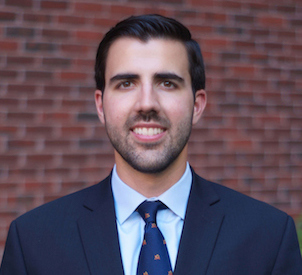Meeting
2021 Genitourinary Cancers Symposium

Harvard Medical School, Boston, MA
Daniel E Lage , M Dror Michaelson , Richard J. Lee , Joseph A. Greer , Jennifer S. Temel , Christopher Sweeney
Background: Most men who die of prostate cancer are older than 70 years, and the impact of therapy in this population is poorly defined. The ChemoHormonal Therapy Versus Androgen Ablation Randomized Trial for Extensive Disease in Prostate Cancer (CHAARTED) randomized men of all ages with metastatic hormone-sensitive prostate cancer (mHSPC) to receive androgen deprivation therapy (ADT) with or without docetaxel. Methods: The results of CHAARTED showed an overall survival (OS) benefit for the addition of docetaxel to ADT in men with mHSPC. In a secondary analysis of this trial, we assessed patient characteristics and OS in patients ≥70 years (“older men”) versus <70 years (“younger men”) with Cox proportional hazards models. Additionally, we compared adverse events, therapy completion rate, and subsequent treatment patterns between these two groups using Chi-squared tests. Results: Of the 790 patients enrolled, 177 (22.4%) were ≥70 years. A greater proportion of older men had an impaired performance status (Eastern Cooperative Oncology Group 1-2: 36.7% vs. 28.6%, p=0.038) and prior local therapy (31.7% vs. 25.9%, p<0.001) compared to younger men. Docetaxel + ADT resulted in improved OS in both older and younger men (Hazard Ratio [HR] 0.45, 95%CI: 0.25-0.80 for older men; HR 0.71, 95%CI: 0.53-0.95 for younger men). This treatment benefit was seen for subgroups of older men with high volume disease (HR 0.43, 95%CI 0.23-0.79) and de novo metastatic disease (HR 0.36, 95%CI 0.19-0.69). A similar proportion of older and younger men completed all six cycles of docetaxel (82.6% vs. 87.1%, p=0.28). Rates of grade 3-5 adverse events were similar between older and younger men (36.8% of older men vs. 26.8% of younger men, p=0.69). The rate of any Grade 4-5 adverse events did not differ significantly between older and younger men (14.9% vs. 11.9%, respectively, p=0.46). In the control arm, a smaller proportion of older men received subsequent cancer treatments (34.4% vs. 51.5%, p=0.017) or subsequent docetaxel (25.6% vs. 37.6%, p=0.035) compared to younger men. Conclusions: In summary, older men with mHSPC who were eligible to participate in a clinical trial had similar OS benefit and clinical outcomes compared to younger men when receiving docetaxel chemotherapy + ADT. Oncologists should consider docetaxel chemotherapy as a favorable treatment option for older men with mHSPC who are fit for chemotherapy. Clinical trial information: NCT00309985
Disclaimer
This material on this page is ©2024 American Society of Clinical Oncology, all rights reserved. Licensing available upon request. For more information, please contact licensing@asco.org
2021 Genitourinary Cancers Symposium
Poster Session
Poster Session: Prostate Cancer - Advanced Disease
Prostate Cancer - Advanced
Therapeutics
NCT00309985
J Clin Oncol 39, 2021 (suppl 6; abstr 82)
10.1200/JCO.2021.39.6_suppl.82
82
Online Only
Abstract Disclosures
2022 ASCO Genitourinary Cancers Symposium
First Author: Elahe A. Mostaghel
2023 ASCO Genitourinary Cancers Symposium
First Author: Neal D. Shore
2023 ASCO Annual Meeting
First Author: Daniel Sentana Lledo
2024 ASCO Breakthrough
First Author: Fumihiko Urabe